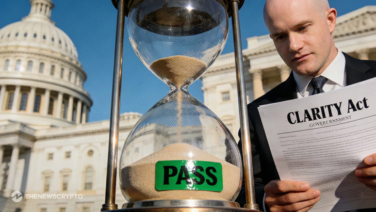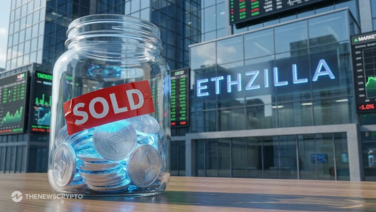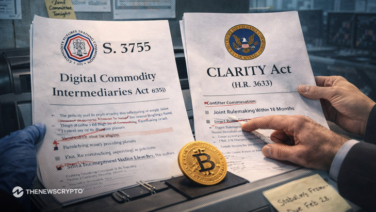The lawsuit between Ripple and SEC is the showstopper from December 2020, the time when the case was filed. The importance and interest poured into this legal war are pretty evident to everyone in the crypto field.
The case is conducted in the Federal Court of New York, Manhattan. The winner raising out of this conflict will have an upper hand in setting up the history of the crypto market.
When Did It All Begin?
Trading down the event lawn, the Ripple company started selling its native token XRP in the year 2013. Between 2013 to 2020, the journey of XRP traveled pretty smoothly without much legal intervention. On paper, the struggle began in November 2021, but unofficially it is said to have started in early September itself.
As per crypto gurus’ assumptions, SEC was suspected to have been following up on Ripple at least 6 months before the filing and providing well notice.
What Is The Case About?
The US agency has accused Ripple Labs, Christian Larsen, Ripple co-founder, and Bradley Garlinghouse, Ripple CEO, of privately selling XRP, which according to them is security. SEC quotes the sales of XRP to be illegal and wants the firm to surrender the $1.3 billion fund raised in the token sales.
Along with that, the SEC also put forth an additional demand. It wants to ban all three above-mentioned participants from further selling tokens in the crypto world.
Defendant’s Response
Ripple Lab, Chris, and Brad are firm on the stand that Ripple (XRP) is not a security asset and hence finds no need for it to be registered under the SEC. Also, they are ready to prove XRP as a fully decentralized commodity that doesn’t fall under any person or corporation’s shadow.
Another major concern raised by Ripple on SEC is the declaration of XRP sales to be illegal without any prior or fair notice. Ripple responded to the SEC to acknowledge XRP as a digital currency and cancel the lawsuit.
Security or a Commodity?
According to the SEC, an asset is categorized to be a security if it fulfills all the four criteria of Howey’s test. A security asset must adhere to the following criteria:
- Should be obtained by investing money,
- Must be available on a common enterprise or platform,
- Render reasonable profit, and
- The profitable outcome is influenced by the efforts of a third party.
The initial three criteria are majorly satisfied by more or less every coin/token in the crypto market. The last one is the crucial criteria. If any person or firm is found to be responsible for the outcome, then the coin/token will be classified as a security.
In this case, the top executives and Ripple are being blamed by the SEC for promoting the XRP token, at the test run phase. SEC claims that the statements and announcements from the organization have indirectly presented XRP to be a high profit-yielding asset among investors.
Strategic Moves
Both parties are putting up each step carefully to win this case. The SEC is gathering information and regulatory laws around the globe to strengthen its side. Even the appointment of the SEC chair Gary Gensler, post the filing of the Ripple lawsuit is marked as a strategic move. Importantly, Gensler is academically equipped with crypto technology knowledge and seems to be dedicated to disproving Ripple’s theory of XRP being truly decentralized.
While SEC chose to play the game through Gensler, Ripple chooses to bring up Bill Hinman, ex-chair of SEC. As part of its defending strategies, Ripple has requested the court to bring back Bill Hinman. Hinman is one prominent personnel linked to this case. He chaired the SEC when the lawsuit was filed. The request for his presence in the court is to add value to Ripple’s counterargument. Hinman’s words in the past regarding Ethereum (ETH) to be a commodity and his supporting views for the statement are very important.
Prolonging Court Sessions
As said before, every individual in the crypto market is focusing on the track of events in the case. And this seems to be never-ending as both sides are dragging from their respective sides. When the SEC requested emails and social group chats among investors & executives during the ICO of XRP, Ripple stretched the band.
Parallel when Ripple requested for the documents and sheets shared among SEC commissioners and officials before and during the case filing, the regulatory body showed no will to share them. It was also highly suspected that those documents will never get to see the daylight at all.
The Blame Game
The SEC pointed fingers at the firm for the talks and mockery that it had to face from the XRP audience and holders. It even requested the court to ban the holders from being a part of the court proceedings.
Ripple is not staying silent too, from the commencement of the case it is blaming the SEC for showing partiality. Though the market is filled with the ‘n’ number of tokens and coins, the government body has picked up only their firm to sue. Ripple complains and condemns the SEC for being an unjust picker.
Negative Points on Either Side
Ripple (XRP) is called a banker token in common man’s terms, this is so because it has been illustrated as an alternative to SWIFT. XRP is widely accepted in many countries as an easier tool for cross-border transactions. Unfortunately, this makes XRP a centralized asset that will be overseen by an organization.
In the case of the SEC, unstable stands and opinions are weighing them out. The SEC keeps changing its points through each proceeding and that may cost them a loss.
Recent Highlights
Recent decisions of Judge Analisa Torres have not been flavorful for both XRP as well as SEC. Both parties’ motions to exclude expert testimony were ruled by Judge. Now the eight expert witnesses from XRP and five witnesses from SEC hold no place in the discussion.
Drawbacks of the Lawsuit
Ripple CEO, Brad stated that they will be leaving the country if they lose the court case. Ripple seems to have started taking steps towards that statement into a concrete reality. As an important part of it, it has announced the opening of a new office in Toronto, Canada, and marked the beginning of active recruitment.
Apart from this, many crypto enthusiasts have shown concern about the fact that this narrowing down procedure by SEC will cost the nation a huge loss. Already considerable amounts of technological innovation are happening outside the US. If SEC continues to project its puppetry control over firms, the left-out tech firms will also move out.
Current Position of XRP
Over the past month, though, the situation has started to change in Ripple’s favor. At the beginning of October 2022, the Federal Court Judge ordered the SEC to turn over Hinman Documents in the ongoing Ripple lawsuit. The SEC had already opposed the decision back in July, but the objection was rejected. The decision was viewed as a significant victory for Ripple and those who supported it in the litigation. The investigation is still far from finished.
The Ripple CEO has recently conveyed his confidence, that the lawsuit against the SEC will conclude by the first half of the year 2023 and the victory will be theirs.
Relativeness of Case with XRP Price
Post the lawsuit, XRP was delisted by many major exchange platforms as a precautionary measure. This enhanced the pressure and panic among the token holders. The price trend of the token has a visible codependence on the court proceedings. When Ripple seemed to have the upper hand in the case, the price of XRP also rose. Similarly, when SEC got the upper hand, the price of XRP dropped instead.
According to CMC, the current price at which XRP is trading is $0.3871, the market cap is above $19 billion along with the 24 hrs trading volume is over $1 billion. The XRP holds the 6th position in the whole crypto market concerning market dominance.
Recommended For You








